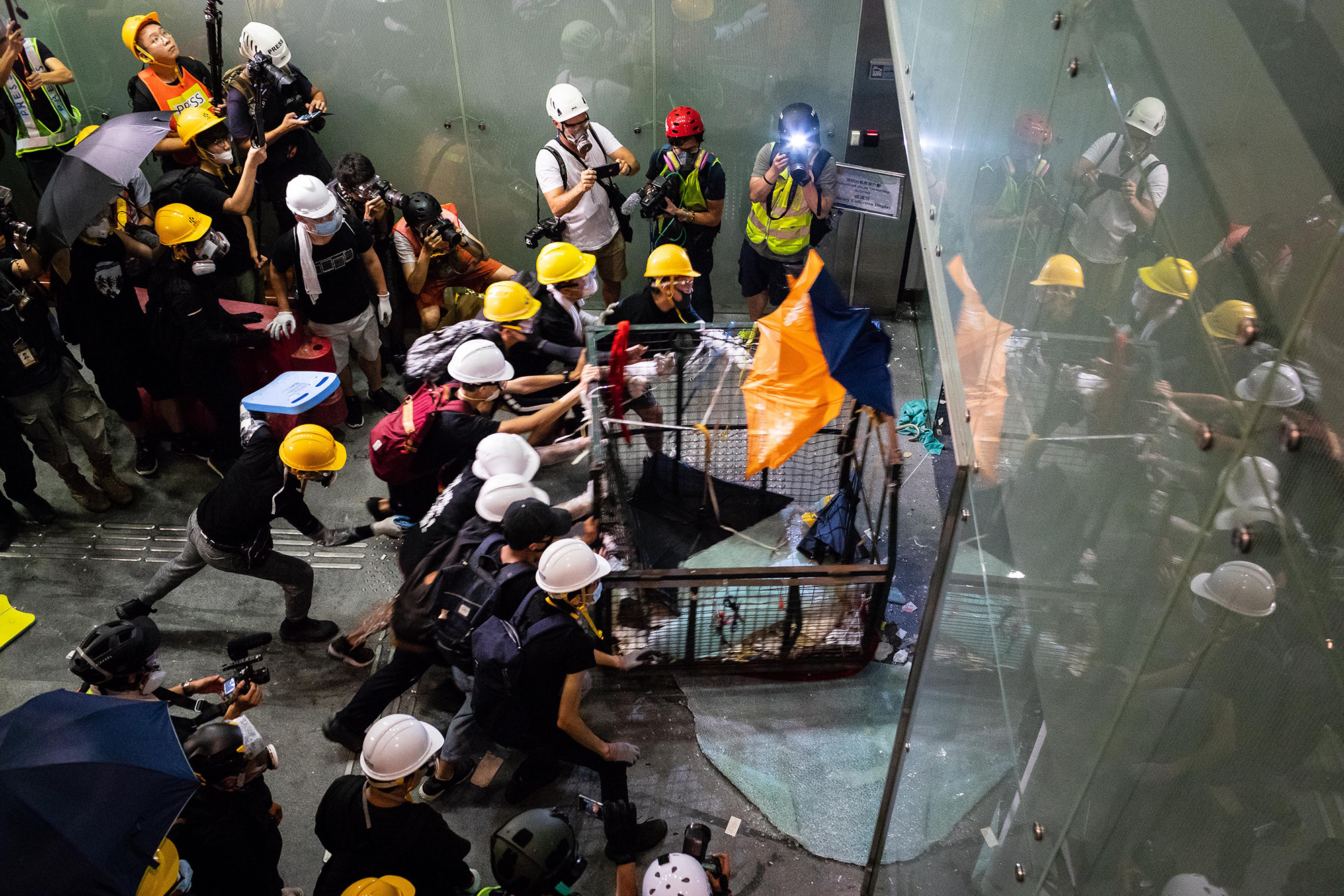[ad_1]

Before the pandemic and the enactment of the national security law in 2020, July 1 — the anniversary of Hong Kong’s handover from British to Chinese rule — was traditionally marked by pro-democracy marches.
On this day three years ago, turnout was boosted by anger over a proposed law that would have allowed extradition from the city to China, which brought hundreds of thousands of Hong Kongers into the streets, eventually forcing the government to suspend the bill.
Critics feared the law could be used to seize government critics and send them across the border to face trial in a system with a 99% conviction rate and a history of political prosecutions.
Before the main march got underway on July 1, 2019, a small, breakaway group of protesters — many of them in their teens and 20s and wearing masks, helmets and other protective gear — surrounded the Legislative Council complex.
Using makeshift battering rams and metal bars to smash through reinforced glass, members of the group forced their way into LegCo, where they daubed anti-extradition bill slogans on the walls, smashed the interior and draped the territory’s former colonial flag across the main chamber’s central podium.
Police did not act as protesters attacked the building or stormed inside, and hundreds were able to remain in the legislature for up to three hours, before word of an imminent clearance operation brought them back onto the streets.
Within minutes of protesters taking a collective decision to exit the building police fired tear gas and used baton charges to disperse the crowd.
The next day, Hong Kong’s then leader Carrie Lam condemned the protesters’ actions, saying they had used “extreme … violence and vandalism.”
The Chinese government’s reaction was similarly critical. A spokesman for the State Council’s Hong Kong and Macau Affairs Office said the “radical” demonstrations had been an “open challenge” to the city’s system of governance.
“This kind of severe illegal action damages Hong Kong’s rule of law, social order and hurts Hong Kong’s fundamental interests,” the statement said, adding that Beijing was fully behind the city’s police force.
How it’s viewed today: The storming of LegCo marked a turning point in the protest movement and China’s view of it. Exactly a year later, Beijing bypassed the city’s legislature to impose the national security law on the city, which critics say, has been used to crush the city’s opposition movement, overhaul its electoral system, silence its outspoken media and cripple its once-vibrant civil society.
[ad_2]
